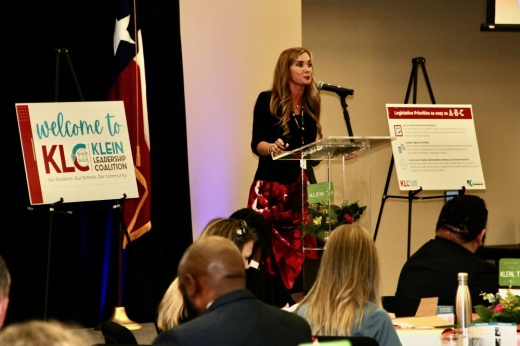The overview
During KISD's Oct. 26 leadership forum, McGown offered several insights into a pair of bills that have been proposed during the Texas Legislature's third special session.
The third session began Oct. 9 and can last up to 30 days. Gov. Greg Abbott has threatened to keep lawmakers in Austin for a fourth special session if they do not pass bills on his agenda, which covers education freedom, border security and a ban on COVID-19 vaccine mandates. Public school funding is not on the governor’s agenda.
On Oct. 19, a Texas House Republican filed a bill that proposes increasing state funding for public schools in exchange for a voucher-like program called education savings accounts.
House Bill 1, a 184-page proposal by House Education Committee Chair Brad Buckley, R-Killeen, would also provide bonuses for public school teachers and set an end date for the state’s current public school accountability system.
The Texas Senate passed its version of a voucher program on Oct. 12, but similar legislation faces bipartisan opposition in the House, including from some rural Republicans.
The details
Under Buckley’s proposed education savings account program, parents would receive 75% of the average amount Texas public schools receive in per-student funding from state and local sources. The state would be required to determine that amount by Jan. 15 of each year.
Families could use the money to pay for private school tuition, books, tutoring, transportation and other education-related expenses. Home-schooled students could receive up to $1,000 per year.
HB 1 takes a different approach to education savings accounts than the Senate’s plan, which the upper chamber approved Oct. 12. The Senate proposed giving eligible families $8,000 per student to cover private school tuition and other expenses.
What they’re saying
During KISD’s Oct. 26 leadership forum, McGown expressed concern over public funding being spent on private schools.
“First of all, we do not have any problems with private schools at Klein ISD,” McGown said. “If a family wants to send their child to a private school, that is their choice. ... But here's where we have a concern: when you are going to take public dollars to fund those private schools.”
McGown said she believes any private school receiving public funding should be held to the same accountability standards as public schools.
“If [the state] thinks its accountability system is so fantastic and it's going to do so many great things for the kids in Texas, then I expect every single private school that is accepting vouchers—public dollars—to have an A-F accountability system as well,” McGown said. “They can experience the same kind of pressure and stress that our school leaders and educators have to experience.”
McGown also said she believes private schools receiving public funding should be held to the same financial standards as public schools.
“If we're going to spend public dollars on a private school, I expect them to be held accountable to the same fiscal transparency and spending rules that we have in public schools,” McGown said. “We're spending public dollars to fund those private schools, so everything that we have to do to be evaluated every single year for how we spend those taxpayer dollars, private schools need to do the same thing.”
Additionally, McGown said she believes private schools receiving public funding should be required to admit any student interested in attending.
“If public dollars are going to start funding private schools, then I expect them to open their doors and let every single kid walk through,” McGown said.





